Geislinger Str. 6
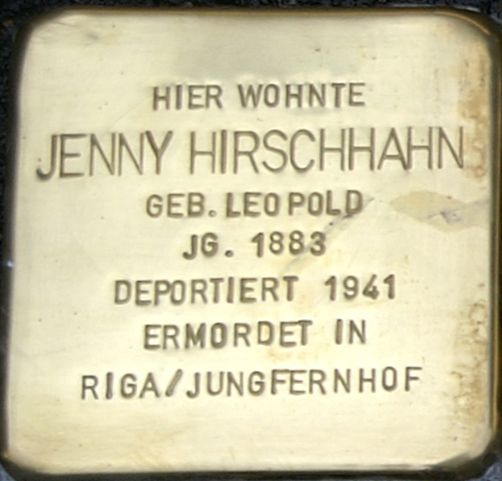
We know that Jenny Hirschhahn was born Jenny Leopold in Krojanke / West Prussia on 21 December 1882. Krojanke, today the Polish Krajenka, then situated on the border of West Prussia to Pomerania in the district of Flatow, was a small town with about 3500 inhabitants, 320 of them of Jewish faith. Jenny’s father Samuel Leopold was one of them. Her mother Ida, née Neumann may have come from a Christian home, because on the Göppingen document concerning Jenny Hirschhahn, a clerk had added the word “half-Jewish” in handwriting.
Also noted by hand was: “related to Rosinberg”. This connection is obvious, because Irma Rosinberg was born ‘Hirschhahn’ (see Stolperstein – Biography Rosinberg) and the name Hirschhahn is very rare. If one searches for Jewish Nazi victims who bear this name, they mostly come from what is now North Rhine-Westphalia. This is also where the Duisburg district of Hamborn is located, where Irma Rosinberg, née Hirschhahn, was born and where we also found a reference to the fact that a Sally (= Salomon) Hirschhahn had run a manufactured goods shop in 1907. This same Sally Hirschhahn, born in 1878, was Jenny’s husband and Irma, born in 1906, was their daughter and probably remained the couple’s only child. The family seems to have lived in Hamborn for only a short time, because neither the Hamborn address book of 1903 nor that of 1910 lists their name. It is very likely that the couple moved to Breslau, where Jenny’s husband died in the 1930s. In Breslau, Jenny’s daughter Irma had married Fritz Rosinberg from Slonin / Lithuania in 1929, and from Breslau the widowed Jenny Hirschhahn also moved to Göppingen in December 1938.
Her address at Geislinger Str. 6 is noted: ‘accommodation provider Mrs. Rosinberg’. Jenny was no longer able to pursue her profession as a cook in Göppingen; she was probably only able to bring a small part of her Breslau flat furnishings with her to Göppingen. However, Berthold Auerbacher testified after the war that Mrs. Hirschhahn’s apartment had made a ‘bourgeois’ impression on him.
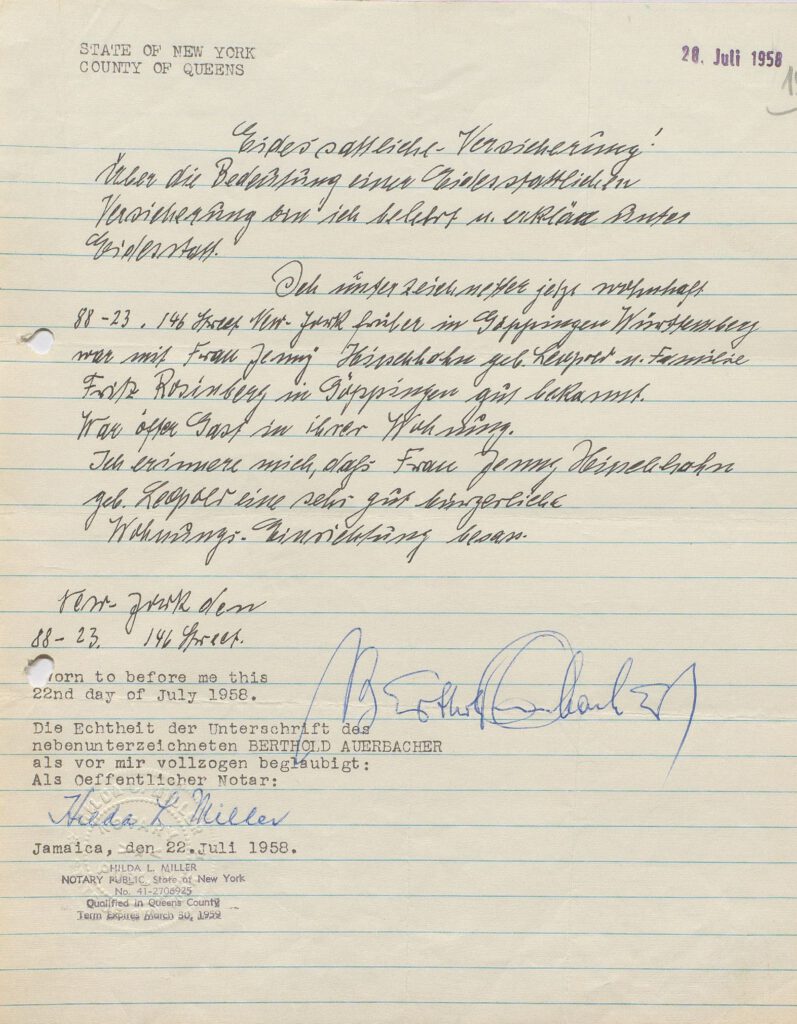
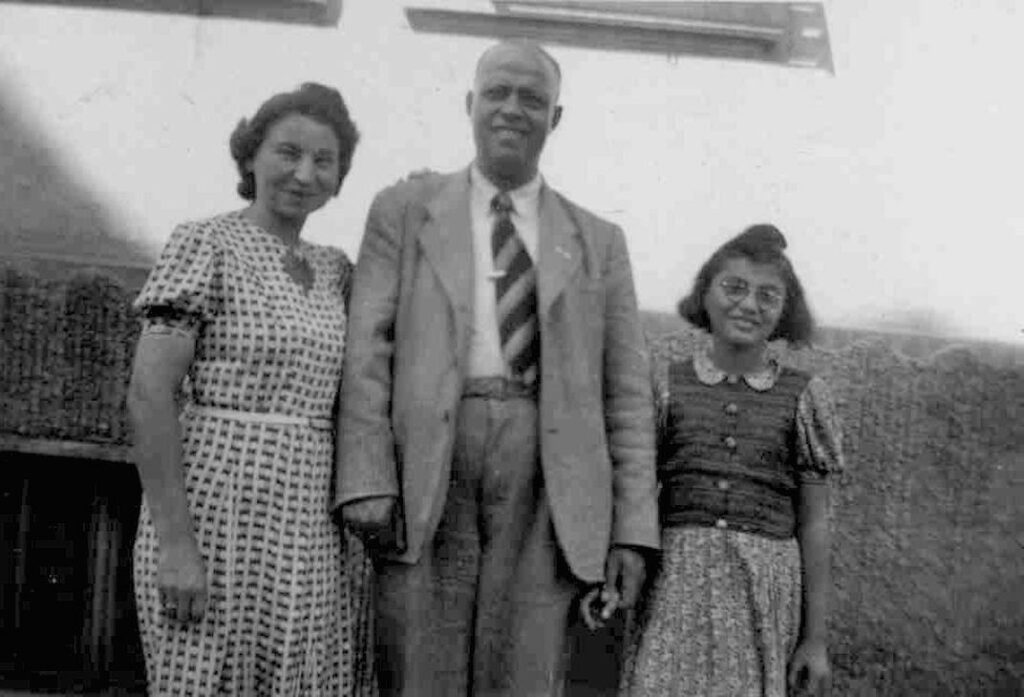
The large house in Geislinger Straße belonged to the Göppingen Jewish family Dörzbacher and the Rosinberg family did not live there voluntarily. They had been evicted from their flat in Obere Marktstraße and then had to move into the ‘Judenhaus’ in Geislinger Straße.
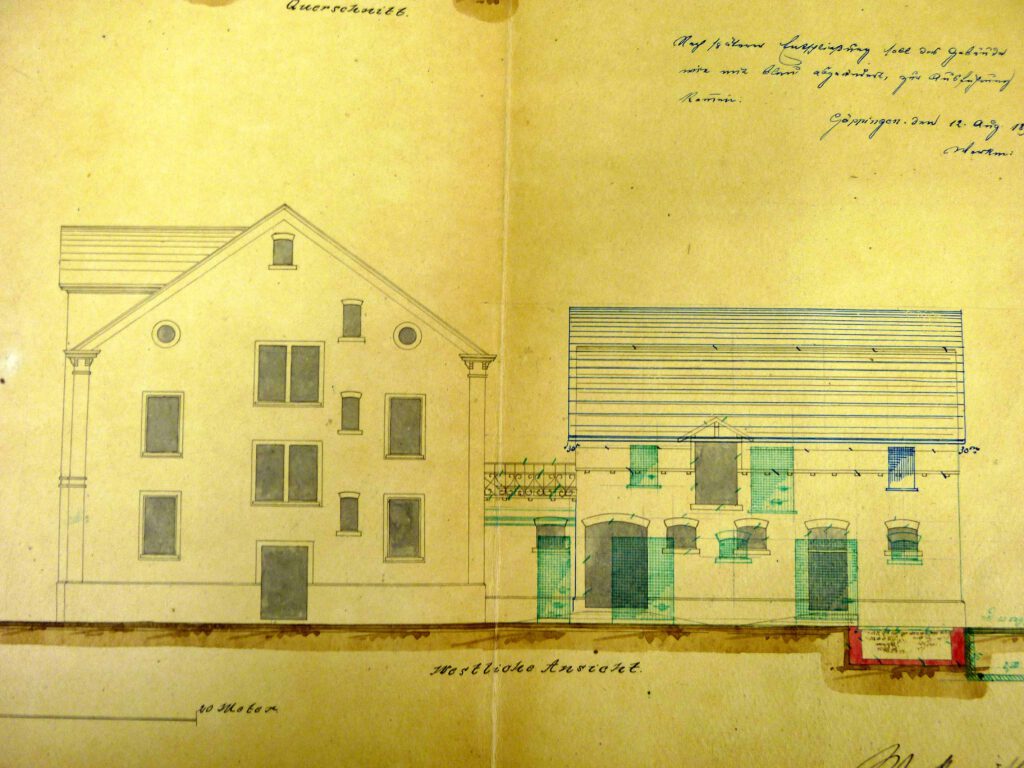
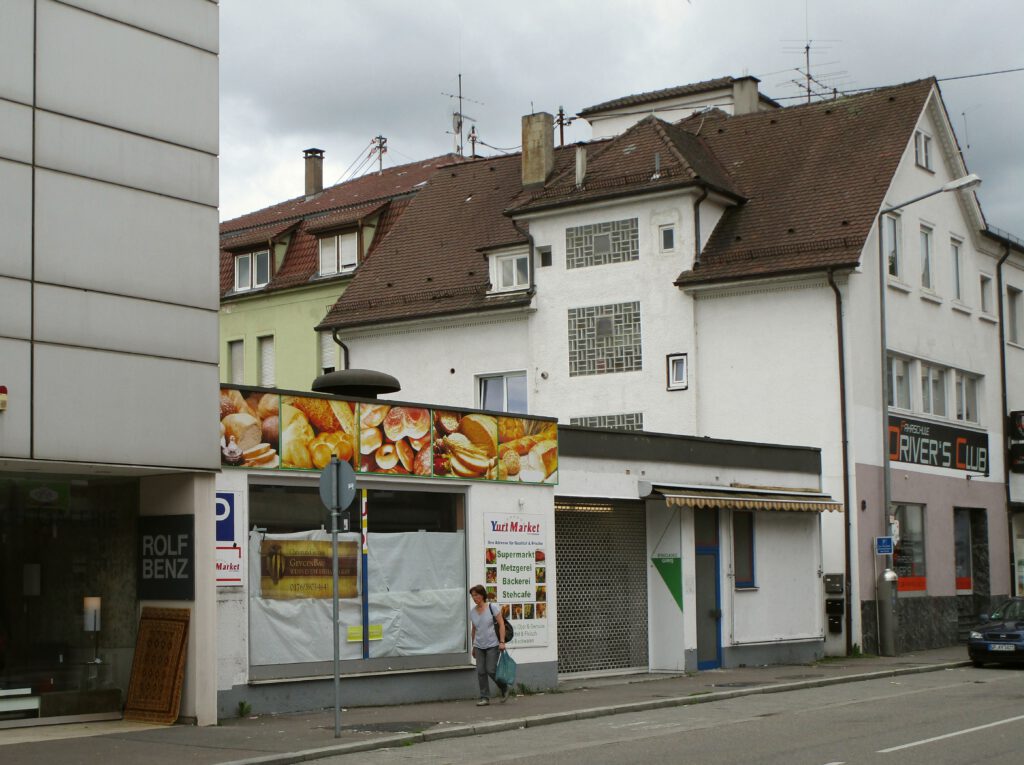
Did Jenny Hirschhahn intend to stay in Göppingen? Did grandmotherly feelings draw her to Göppingen? After all, her grandchildren Arnold and Heinz Rosinberg lived here. Jenny’s older brother Sally Leopold had fled with his family from Breslau to Shanghai during the Nazi era, and after the war he settled in Detroit, USA.
Like the Rosinberg family, the 59-year-old Jenny Hirschhahn was also caught up in the first and largest deportation from Göppingen. On 28 November 1941, 39 Jewish people were rounded up at the Goeppingen Schiller School and searched in a degrading manner. The next, far worse camp awaited them on Stuttgart’s Killesberg, where about a thousand Jews were imprisoned in the exhibition halls without any provision for a humane infrastructure. On 1 December 1941, they travelled in an unheated train from Stuttgart for three days and four nights to Latvia, where the tormented people had to leave the train at Riga. Hungry and thirsty, they still faced the march to the Jungfernhof camp, where they were again housed completely inadequately and had to suffer from extreme cold. When and how Jenny Hirschhahn died there is not known. Probably, like most of the camp inmates, she was shot by Germans or their Latvian auxiliaries on 26/27 March 1942 in the nearby Bikernieki forest.
On 19 September 2012, Gunter Demnig placed a Stolperstein where the former house at Geislinger Straße 6 had stood. In memory of Jenny Hirschhahn and as an indictment of her murderers.
(23.07.2023 kmr / pr)













Leave a Reply